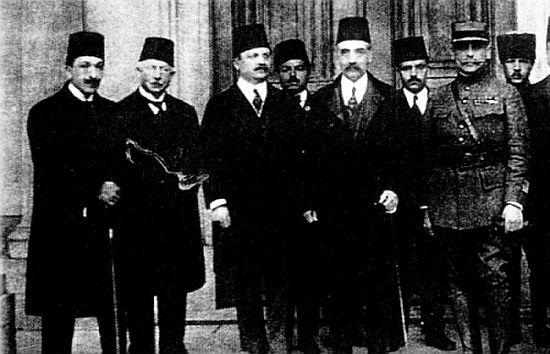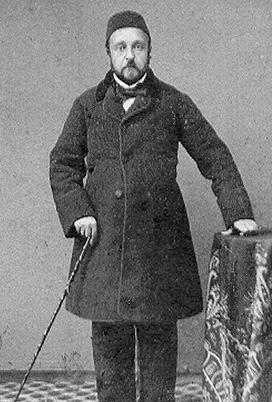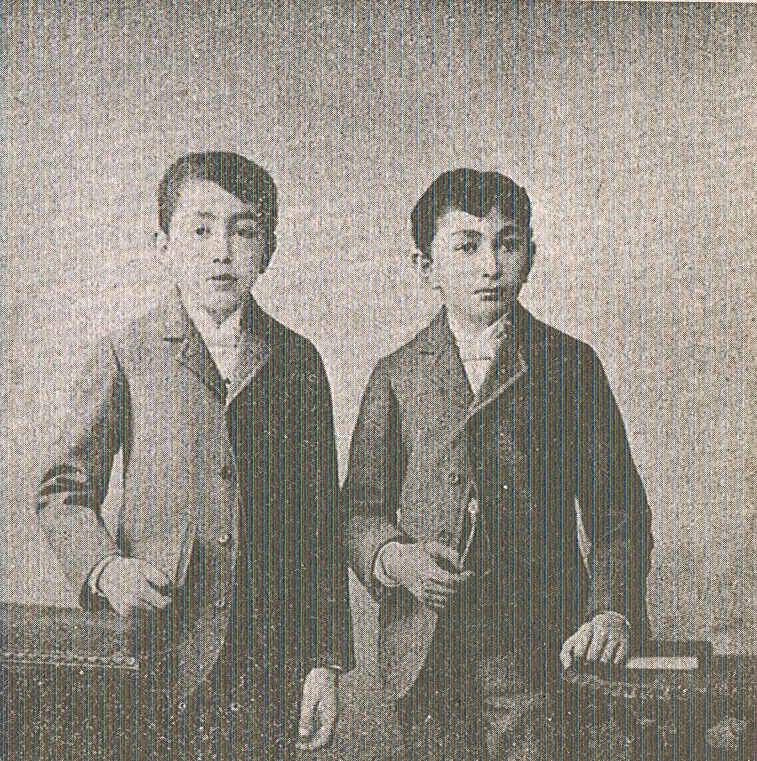|
Liberal Union (Ottoman Empire)
The Freedom and Accord Party ( ota, حریت و ایتلاف فرقهسی, Hürriyet ve İtilaf Fırkası, script=Arab), also known as the Liberal Union or the Liberal Entente, was a liberal Ottoman political party active between 1911 and 1913, during the Second Constitutional Era. It was the most significant opposition to Union and Progress in the Chamber of Deputies. The political programme of the party advocated for Ottomanism, government decentralisation, the rights of ethnic minorities, and close relations with Britain. In the post-1918 Ottoman Empire, the party became known for its attempts to suppress and prosecute the CUP. Name The Freedom and Accord Party ( tr, Hürriyet ve İtilâf Fırkası) is sometimes conflated with its predecessor, the Liberty Party, and the two organizations are often known collectively as the Liberal Union or the Liberal Entente. In the Ottoman Empire, its members were known as ''İtilâfçılar'' or Itilafists, who were opposed to members o ... [...More Info...] [...Related Items...] OR: [Wikipedia] [Google] [Baidu] |
Damat Ferid Pasha
Damat Mehmed Adil Ferid Pasha ( ota, محمد عادل فريد پاشا tr, Damat Ferit Paşa; 1853 – 6 October 1923), known simply as Damat Ferid Pasha, was an Ottoman liberal statesman, who held the office of Grand Vizier, the ''de facto'' prime minister of the Ottoman Empire, during two periods under the reign of the last Ottoman Sultan Mehmed VI, the first time between 4 March 1919 and 2 October 1919 and the second time between 5 April 1920 and 21 October 1920. Officially, he was brought to the office a total of five times, since his cabinets were recurrently dismissed under various pressures and he had to present new ones.İsmail Hâmi Danişmend, Osmanlı Devlet Erkânı, Türkiye Yayınevi, İstanbul, 1971 (Turkish) Because of his involvement in the Treaty of Sèvres, his collaboration with the occupying Allied powers, and his readiness to acknowledge atrocities against the Armenians, he became an unpopular figure in Turkey and emigrated to Europe at the ... [...More Info...] [...Related Items...] OR: [Wikipedia] [Google] [Baidu] |
Midhat Frashëri
Midhat (also spelled Medhat, Mitat, or Mithat) (Arabic مدحت Romanized: Midḥat) is a masculine given name of Arabic origin. Particularly, in Pakistan Midhat is used as a girl name. The name means 'Praise' or 'Eulogy'. Persons with the given name Midhat * Midhat Pasha (1822–1884), Ottoman grand vizier * Medhat Abdel-Hady (born 1974), Egyptian footballer * Midhat Şükrü Bleda (1874–1956), Turkish politician * Midhat Frashëri (1880–1949), Albanian diplomat, writer and politician * Midhat J. Gazalé (born 1929), Egyptian international telecommunications and space consultant * Midhat Mursi (1953–2008), Egyptian chemist * Mithat Sancar (born 1963), Turkish politician * Mithat Demirel (born 1978), Basketball player * Mithat Bayrak (1929–2014) Turkish wrestler * Mithat Yasar (born 1986) Turkish football player * Mithat Ertug (1904–unknown) Turkish football player Persons with the last name Midhat * Dalal Midhat-Talakić Dalal Midhat-Talakić ( née Midhat; b ... [...More Info...] [...Related Items...] OR: [Wikipedia] [Google] [Baidu] |
Gümülcineli İsmail
Gümülcineli İsmail Hakkı Bey (1877 – 1942) was a liberal politician in the late Ottoman Empire The Ottoman Empire, * ; is an archaic version. The definite article forms and were synonymous * and el, Оθωμανική Αυτοκρατορία, Othōmanikē Avtokratoria, label=none * info page on book at Martin Luther University) ..., who was a member of the Liberal Union. References 1877 births 1942 deaths 20th-century Turkish politicians Istanbul University Faculty of Law alumni People from Komotini Politicians of the Ottoman Empire {{turkey-politician-stub ... [...More Info...] [...Related Items...] OR: [Wikipedia] [Google] [Baidu] |
Mizancı Murat
Mizancı Murat (1853–1912) was an Ottoman monarchist, democrat, historian and politician, who was renowned for his work on reviving the concept of Ottomanism during the Second Constitutional Era. Biography Mizancı Murat was born in Tbilisi in 1853. He received education in Russia. Following his graduation he worked as a lecturer at Istanbul University. He was a member of the Young Turks and had a pan-Islamist political stance. In 1886 he launched a newspaper entitled ''Mizan Mizan ( ar, ميزان, lit=balance) is a concept in Quran, which has been described as "the principle of the middle path" and "the overarching divine principle for organizing our universe". Azizah Y. al-Hibri argues that ''Mizan'', as the "divine ...''. Due to his alleged role in the coup against the Committee of Union and Progress in 1909, Mizancı Murat was sent to exile. He returned to Istanbul later, but retired from politics, and he died in 1912. References External links * 1853 births 1912 ... [...More Info...] [...Related Items...] OR: [Wikipedia] [Google] [Baidu] |
Mehmed Rauf Pasha
Mehmed Rauf Pasha (1838 – 1923) was an Ottoman senator and liberal politician during the Second Constitutional Era The Second Constitutional Era ( ota, ایكنجی مشروطیت دورى; tr, İkinci Meşrutiyet Devri) was the period of restored parliamentary rule in the Ottoman Empire between the 1908 Young Turk Revolution and the 1920 dissolution of the ..., who was a member of the Freedom and Accord Party. References 1838 births 1923 deaths Politicians from Istanbul Politicians of the Ottoman Empire {{Turkey-bio-stub ... [...More Info...] [...Related Items...] OR: [Wikipedia] [Google] [Baidu] |
Mehmed Hâdî Pasha
Mehmed Hâdî Pasha ( tr, Bağdatlı Mehmet Hâdî Paşa; 1861 – 1932) was an Ottoman general, statesman, and a member of the Liberal Union. He is most remembered in Turkey for being one of the four Ottoman signatories of the Treaty of Sèvres The Treaty of Sèvres (french: Traité de Sèvres) was a 1920 treaty signed between the Allies of World War I and the Ottoman Empire. The treaty ceded large parts of Ottoman territory to France, the United Kingdom, Greece and Italy, as well ..., for which reason he was included in 1923 among the 150 of Turkey. He died in exile in 1932. References {{DEFAULTSORT:Pasha, Mehmed Hâdî 1861 births 1932 deaths personae non gratae of, 150 People from Baghdad Politicians of the Ottoman Empire ... [...More Info...] [...Related Items...] OR: [Wikipedia] [Google] [Baidu] |
Rıza Nur
Rıza Nur (30 August 1879 in Sinop – 8 September 1942 in Istanbul) was a Turkish surgeon, politician and writer. He was prominent in the years immediately after the First World War, where he served as a cabinet minister but was subsequently marginalised, and became a critic of Atatürk. His acclaimed autobiography ''Hayat ve Hatıratım'' was written from exile in France and Egypt as an alternative narrative to Atatürk's famous speech ''Nutuk'' that has dominated the historiography of Turkey. Like Halide Edib and Rauf Orbay, Rıza Nur's work is part of a body of early Republican literature that sought plurality in the increasingly authoritarian Turkish Republic. Early years After graduating from the Military Medical School in 1901 Rıza Nur went on to work as a surgeon at Gülhane Military Hospital before returning to the Military Medical School as an academic in 1907. Before this, an early posting had seen him serve on the border with Bulgaria where his job was to check if ... [...More Info...] [...Related Items...] OR: [Wikipedia] [Google] [Baidu] |
Refik Halit Karay
Refik Halit Karay (15 March 1888 – 18 July 1965) was a Turkish educator, writer and journalist. Biography He was born in Beylerbeyi, İstanbul, on 14 March 1888. His parents were Mehmed Halid Bey and Nefise Ruhsar Hanım. After studying at Galatasaray High School and Istanbul University Faculty of Law, he briefly served in the Ministry of Finance of the Ottoman Empire. During the Second Constitutional Era in 1908 he resigned from his post and published a short-living newspaper. He also wrote in literary periodicals. Being an opponent of the Committee of Union and Progress he was exiled to several cities in Anatolia. After returning to İstanbul he wrote mainly on Anatolian life style. He was a pioneer in Anatolian based literature. He attended the Freedom and Accord Party. During the reign of the Freedom and Accord Party he served as the teacher of Literature in Robert College and then the General Director of Turkish PTT. He published a periodical named '' Aydede'' and wa ... [...More Info...] [...Related Items...] OR: [Wikipedia] [Google] [Baidu] |
Ali Kemal
Ali Kemal Bey (; 7 September 1869 – 6 November 1922) was a Turkish journalist, newspaper editor, poet, liberal-leaning politician, and government official who was for some three months Minister of the Interior in the government of Damat Ferid Pasha, the Grand Vizier of the Ottoman Empire. He was murdered by paramilitary officers during the Turkish War of Independence. Kemal is the father of Zeki Kuneralp, who was the former Turkish ambassador in Switzerland, the United Kingdom, and Spain. In addition, he is the paternal grandfather of both the Turkish diplomat Selim Kuneralp, and the British politician Stanley Johnson. Through Johnson, Ali Kemal is the great-grandfather of former British prime minister Boris Johnson and his siblings. Life and career Kemal's father, Hacı Ahmet Rıza Effendi, was a Turk from the village of Kalfat in Çankırı, whilst his mother was a Circassian, reputedly of slave origin. Kemal was a journalist who travelled widely as a result of being ... [...More Info...] [...Related Items...] OR: [Wikipedia] [Google] [Baidu] |
Rıza Tevfik Bölükbaşı
Rıza Tevfik Bey (Rıza Tevfik Bölükbaşı after the Turkish Surname Law of 1934; 1869 – 31 December 1949) was an Ottoman and later Turkish philosopher, poet, politician of liberal signature and a community leader (for some members among the Bektashi community) of the late-19th-century and early-20th-century. A polyglot, he is most remembered in Turkey for being one of the four Ottoman signatories of the disastrous Treaty of Sèvres, for which reason he was included in 1923 among the 150 of Turkey, and he spent 20 years in exile until he was given amnesty by Turkey in 1943. Early life and career Rıza Tevfik was born in 1869 in , today Svilengrad in Bulgaria, to an Albanian father originally from Dibra and Circassian mother, who died when he was young. He had a brother Besim, who would later commit suicide in Edirne. Placed in a Jewish school in Constantinople by his father, who was a prefect, Rıza Tevfik learned Spanish and French at an early age. He was remarked as a ... [...More Info...] [...Related Items...] OR: [Wikipedia] [Google] [Baidu] |
Kâmil Pasha
Mehmed Kâmil Pasha ( ota, محمد كامل پاشا مصري زاده; tr, Kıbrıslı Mehmet Kâmil Paşa, "Mehmed Kamil Pasha the Cypriot"), also spelled as Kiamil Pasha (1833 – 14 November 1913), was an Ottoman statesman and liberal politician of Turkish Cypriot origin in the late-19th-century and early-20th-century. He was the Grand Vizier of the Empire during four different periods.İsmail Hâmi Danişmend, Osmanlı Devlet Erkânı, Türkiye Yayınevi, İstanbul, 1971 (Turkish) Biography He was born in Nicosia in 1833, son of Captain Salih Ağa from the village of Pyrogi, in Cyprus. His first post was in the household of the Khedive of Egypt who at that time was only nominally dependent to the central Ottoman power in Constantinople. In the course of this appointment he visited London for the Great Exhibition of 1851 in charge of one of the Khedive's sons. Kiamil's sojourn in London left in him a lifelong admiration for Britain and during his career within the Ot ... [...More Info...] [...Related Items...] OR: [Wikipedia] [Google] [Baidu] |
Prince Sabahaddin
Prince Sabahaddin de Neuchâtel (born Sultanzade Mehmed Sabâhaddin Bey; 13 February 1879 – 30 June 1948) was an Ottoman sociologist and thinker. Because of his threat to the ruling House of Osman (the Ottoman dynasty), of which he was a member, in the late 19th and early 20th centuries due to his political activity and push for democracy in the Empire, he was exiled. He was one of the founders of the short-lived Ottoman Liberty Party. Although part of the ruling Ottoman dynasty himself, through his mother, Sultanzade Sabahaddin was known as a Young Turk and thus opposed to the absolute rule of the dynasty. As a follower of Émile Durkheim, Prince Sabahaddin is considered to be one of the founders of sociology in Turkey. He established the League for Private Initiative and Decentralization ( tr, Teşebbüs-i Şahsi ve Adem-i Merkeziyet Cemiyeti) in 1902. Biography Prince Sabahaddin was born in Istanbul in 1879. His mother was Seniha Sultan, daughter of Ottoman sultan ... [...More Info...] [...Related Items...] OR: [Wikipedia] [Google] [Baidu] |





